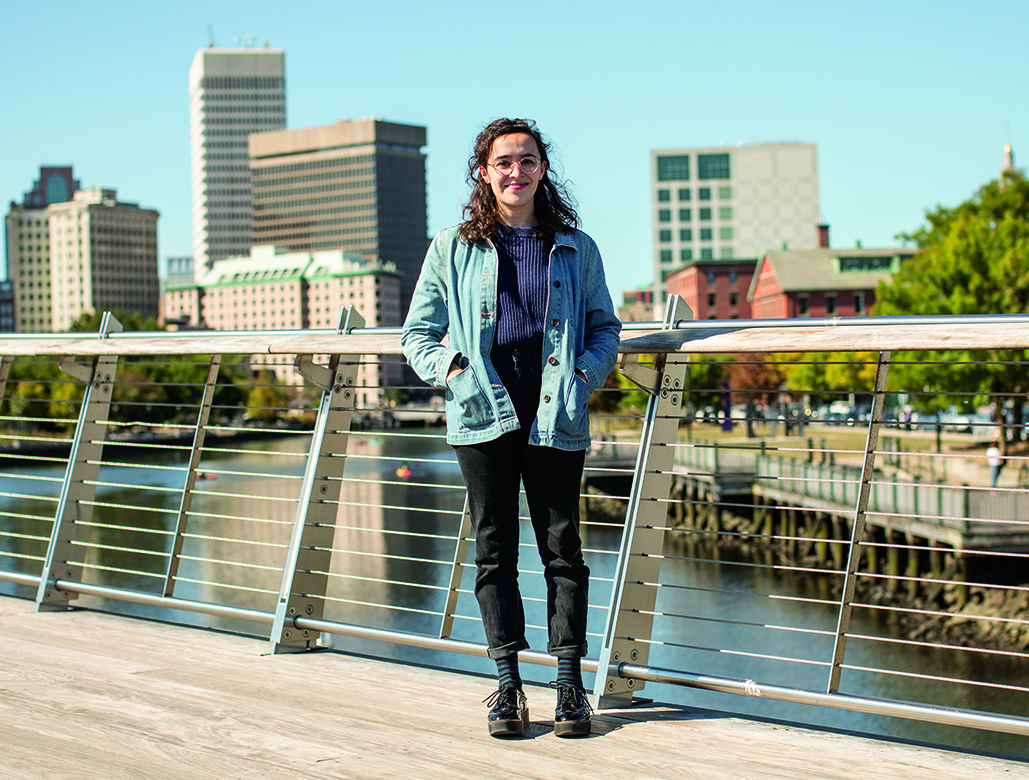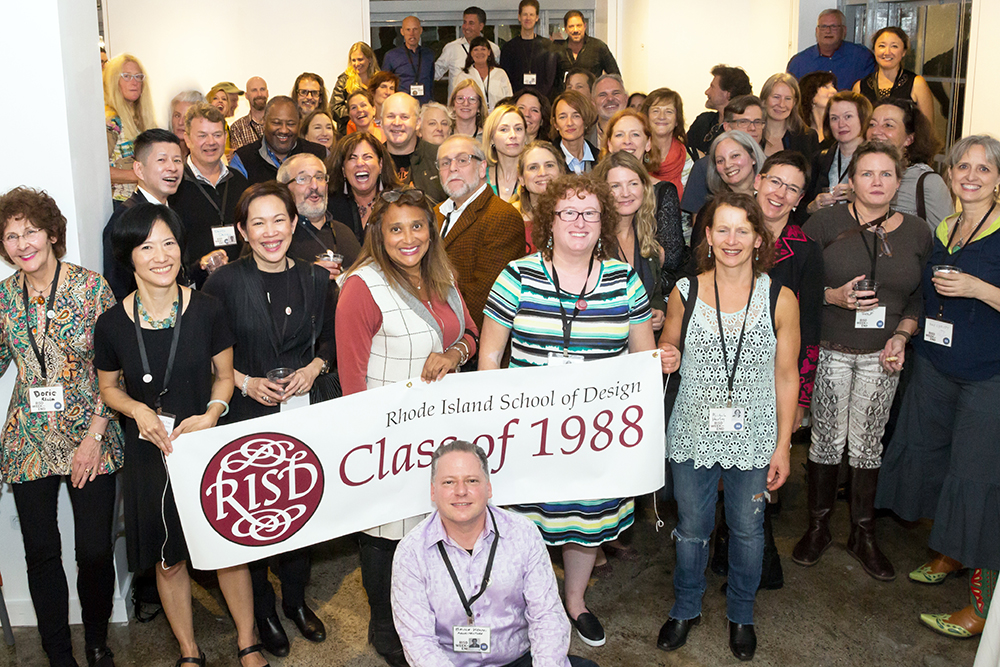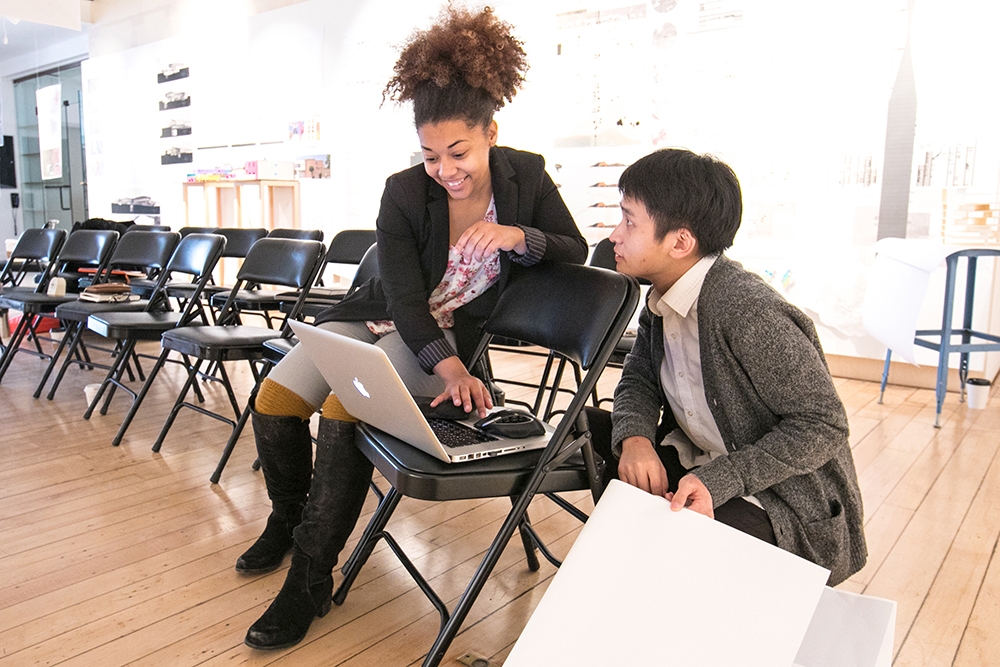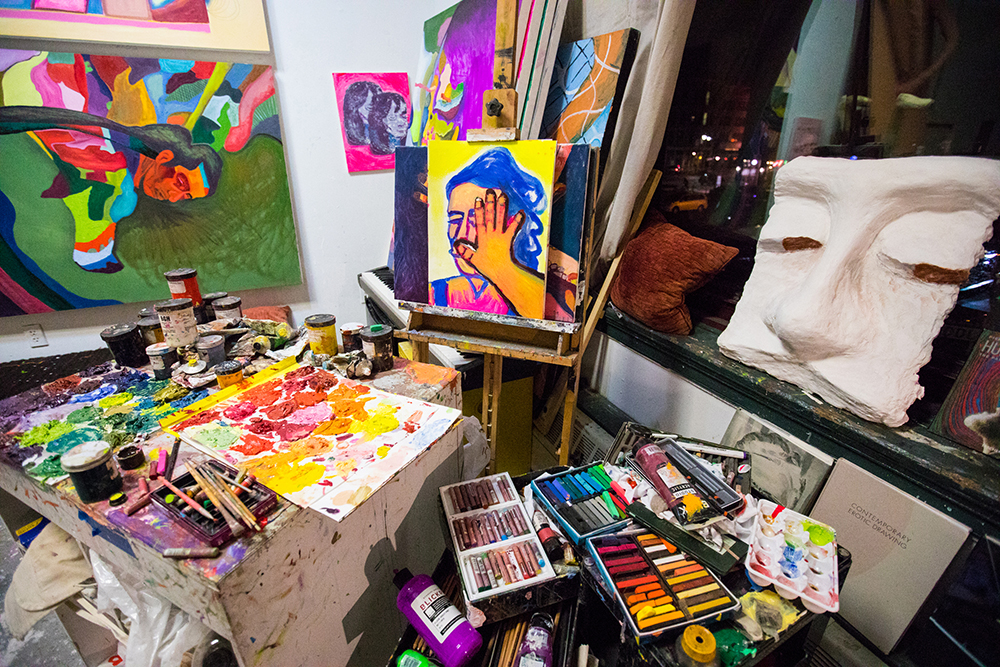
Thinking Critically About Design
Thanks to her fellowship, Katrina Machado MID 21 is exploring how design can better understand, care and empathetically serve people.
Machado gained her appreciation of hands-on making from her parents, who immigrated to the United States from the Azores, Portugal. “Growing up, I watched them figure out how to fix things and they often showed me as well. We built fences, replaced the siding on our house and reupholstered furniture. These experiences made me value making skills and increased my curiosity,” she says.
Growing up in Dartmouth, Massachusetts, gave her the chance to take Pre-College courses offered by RISD Continuing Education that sparked her interest in studying here. “I almost attended RISD for undergrad,” she recalls. “I was accepted, but I was not quite ready to commit to an arts and design education.”
“After working a few years after college as an editorial print graphic designer, I found myself itching to work more with my hands and to think more critically and deeply about design. I was attracted to RISD’s Industrial Design program because it focused on craft and making. It also emphasized important thematic subjects like sustainability and health.”
Learning remotely this spring redirected much of Machado’s work as she had to make and iterate with limited supplies and equipment. Some of her projects have focused on users with food allergies, immigration experiences and children learning science, technology, engineering, arts and mathematics (STEAM) skills. “I get excited by projects and systems that address big picture change from new angles,” she says.
Her undergraduate studies in international relations also lead her to explore politics, culture, history and gender in her creative practice. “I received a Graduate Commons Grant this summer, which has funded some of my recent work exploring craft of the Azores and my own family’s immigration experience,” she says.
Larger support for her studies has come through the Fred M. Roddy Foundation Fellowship and the Materials Fund. “Financial aid allows me to focus on my creative work. I’m not sure I would have been brave enough to take on this experience without the financial help.”
“I also work multiple jobs and assistantships, which pay for monthly expenses, and my assistantships have provided new learning experiences. I have had the opportunity to be a teaching assistant in the Azores and on campus, work in the Industrial Design woodshop, tutor at the Center for Arts & Language and experiment with color and wood with faculty,” she says. “These experiences have made me feel more connected to RISD and have developed my interests outside the classroom.”



